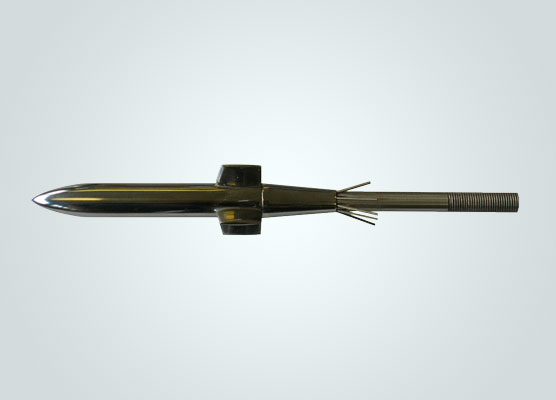No Surrender: Manila's Defiance In Face Of Chinese Pressure On Missile Technology

Table of Contents
The Geopolitical Context: China's Growing Influence in the South China Sea
China's influence in the South China Sea is undeniable. Its expanding military presence, characterized by increased naval patrols, the construction and militarization of artificial islands, and aggressive fishing practices, directly challenges the sovereignty of neighboring nations, including the Philippines. This strategically vital region boasts abundant natural resources, crucial shipping lanes, and rich fishing grounds, making it a focal point of geopolitical competition. Historical territorial disputes, particularly those involving the Spratly Islands, further complicate the situation. China's claims often directly overlap with those of the Philippines, creating a persistent source of friction.
- Increased Chinese naval patrols encroaching on Philippine waters.
- Artificial island construction and militarization, transforming reefs into fortified outposts.
- Aggressive fishing practices, often within Philippine Exclusive Economic Zones (EEZs).
- Violation of Philippine sovereign territory, leading to diplomatic protests and international condemnation.
Manila's Pursuit of Missile Technology: A Defensive Strategy
Faced with this escalating threat, the Philippines' pursuit of missile technology is framed squarely as a defensive strategy. Manila seeks to bolster its national defense capabilities and deter potential aggression from China. The acquisition of missile technology is seen not as an offensive measure, but as a crucial tool to safeguard its territorial integrity and protect its citizens. Potential sources of this technology could include traditional allies such as the United States, as well as other partners willing to assist in strengthening the Philippines' defensive posture. The types of missiles being considered likely include anti-ship missiles to counter Chinese naval power and anti-air missiles to protect vital infrastructure and military assets.
- Strengthening national defense capabilities to counter potential threats.
- Providing a credible deterrent against further aggression from China.
- Protecting the Philippines' territorial integrity, including its EEZ.
- Maintaining regional stability by discouraging further expansionist actions.
Economic and Political Implications of Acquiring Missile Technology
Acquiring missile technology carries significant economic and political implications. While increased defense spending is inevitable, it could also stimulate foreign investment in the Philippine defense sector. However, this move could significantly strain relations with China, potentially leading to economic sanctions or other forms of pressure. Conversely, it could solidify alliances with countries such as the United States, Japan, and Australia, who may provide support, both financially and technologically.
- Increased defense spending, potentially diverting resources from other development priorities.
- Potential for foreign investment in the defense industry, stimulating economic growth.
- Impact on diplomatic relations with China, possibly leading to strained ties.
- Strengthened alliances with other nations sharing similar security concerns.
Chinese Pressure and Diplomatic Responses from Manila
China has responded to Manila’s pursuit of missile technology with a multifaceted approach. This includes diplomatic protests, attempts at economic coercion (including subtle threats to tourism or trade), and subtle military posturing near Philippine-claimed territories. Manila, however, has consistently asserted its right to self-defense under international law, refusing to back down from its plans to acquire the necessary defensive capabilities. This firm stance represents a significant challenge to China's regional ambitions.
- Diplomatic protests and official statements condemning the Philippines' actions.
- Economic incentives and disincentives, subtly pressuring the Philippines to reconsider.
- Military posturing and exercises near disputed territories to demonstrate power.
- Philippines' steadfast assertion of its right to self-defense and territorial integrity.
International Support and the Future of Manila's Defense Posture
The international community plays a crucial role in shaping the future of the Philippines' defense posture. The United States, Japan, and Australia have expressed support for the Philippines' right to self-defense, offering military aid, technology transfers, and participation in joint military exercises and training. These partnerships enhance the Philippines' capabilities and potentially act as deterrents against aggressive actions. This continued support suggests a potential for multilateral security partnerships in the region to counter China's influence and maintain regional stability.
- Military aid and technology transfers from key allies like the US, Japan, and Australia.
- Joint military exercises and training to improve interoperability and preparedness.
- Potential for multilateral security partnerships to enhance collective defense capabilities.
- Long-term impact on the South China Sea balance of power, potentially shifting the regional dynamic.
Conclusion: No Surrender: Manila's Continued Defiance
Manila’s determined pursuit of missile technology represents a significant act of defiance against mounting Chinese pressure. This decision, though fraught with economic and political complexities, highlights the Philippines' unwavering commitment to protecting its sovereignty and territorial integrity. The international support it receives will play a crucial role in shaping the future balance of power in the South China Sea. The ongoing geopolitical struggle underscores the need for continued vigilance. Stay informed about developments in the region and support Manila’s defense strategy, understanding the importance of the Philippines’ missile technology program for regional stability. The future security of the South China Sea depends, in part, on the continued success of Manila's efforts to defend itself against undue pressure.

Featured Posts
-
 Hedge Fund Executive Banned From Us Accusations Of Lying To Immigration Officials
May 20, 2025
Hedge Fund Executive Banned From Us Accusations Of Lying To Immigration Officials
May 20, 2025 -
 Is Good Morning America Facing Major Layoffs The Truth Behind The Uncertainty
May 20, 2025
Is Good Morning America Facing Major Layoffs The Truth Behind The Uncertainty
May 20, 2025 -
 Key Stats And Fast Facts About Wayne Gretzkys Hockey Career
May 20, 2025
Key Stats And Fast Facts About Wayne Gretzkys Hockey Career
May 20, 2025 -
 La Conmovedora Noticia Que Recibio Michael Schumacher
May 20, 2025
La Conmovedora Noticia Que Recibio Michael Schumacher
May 20, 2025 -
 Wnba Probes Reports Of Racial Slurs Targeting Angel Reese
May 20, 2025
Wnba Probes Reports Of Racial Slurs Targeting Angel Reese
May 20, 2025
